Remarkable Advancements in Global Agriculture Driving Sustainability and Efficiency
The global agricultural sector is undergoing a profound transformation, marked by remarkable progress in productivity, efficiency, and sustainability. This evolution is fueled by cutting-edge technological innovations and an increasing global awareness of critical environmental concerns, propelling agriculture forward at an unprecedented rate.
Harnessing Technology for Precision Agriculture
One of the most significant advancements is the widespread adoption of precision agriculture. By leveraging GPS technology, sophisticated sensors, versatile drones, and powerful data analytics software, today’s farmers can achieve unparalleled accuracy in monitoring and managing both crops and livestock. This data-driven approach enables the optimized use of vital resources such as water, fertilizers, and pesticides, leading to substantial reductions in operational costs and a minimized environmental footprint.
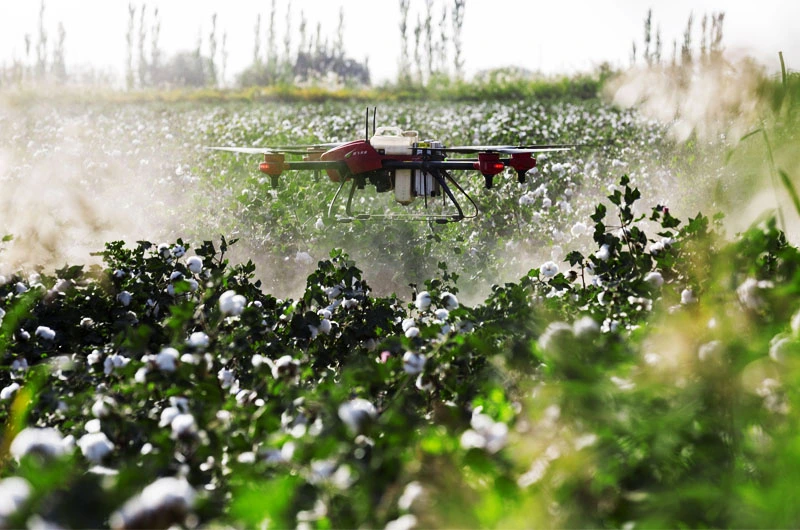
The Rise of Automation in Farming
Automation is also playing an ever-increasing role in modern agriculture. The integration of automated machinery, including advanced planters, efficient harvesters, and innovative robotic harvesting systems, is becoming increasingly commonplace. This technological shift significantly boosts productivity, alleviates the physical demands of agricultural labor, and effectively addresses the growing issue of labor shortages within the sector.
AI and IoT: Revolutionizing Farm Management
The seamless integration of Artificial Intelligence (AI) and the Internet of Things (IoT) is further revolutionizing traditional farming practices. AI algorithms meticulously analyze vast datasets gathered from in-field sensors, real-time weather forecasts, and advanced pest detection systems. This analysis empowers farmers to make highly informed and intelligent management decisions. Simultaneously, the IoT connects a diverse range of devices and systems across the farm, creating a cohesive, smart, and remarkably efficient cultivation environment.
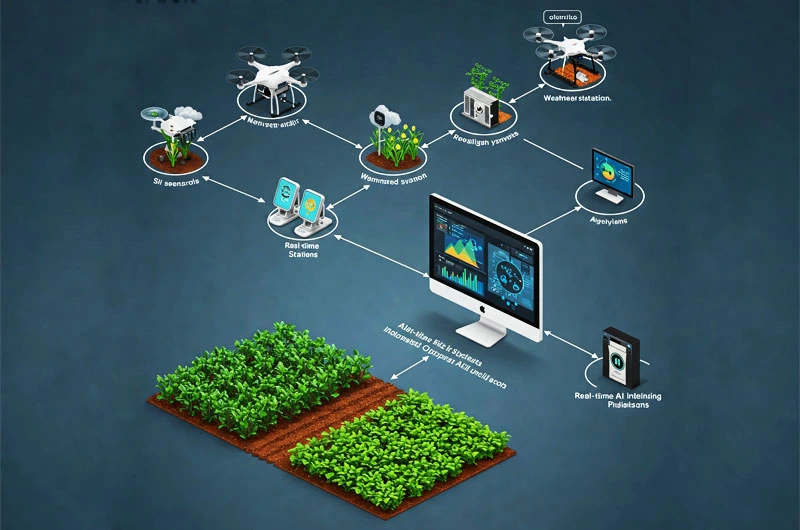
Biotechnology and Innovative Farming Methods
Biotechnology has made substantial contributions to agricultural progress, particularly through the development of genetically modified organisms (GMOs). These organisms are specifically engineered to enhance crop yields and improve resistance to common pests and challenging environmental conditions. While the ethical and environmental implications of GMOs continue to be debated, their significant impact on global food production remains undeniable. Furthermore, innovative farming methodologies such as vertical farming, hydroponics, and aeroponics are enabling cultivation within controlled environments. This independence from traditional weather patterns and soil conditions leads to significantly increased yields per unit area and a substantial reduction in water consumption.
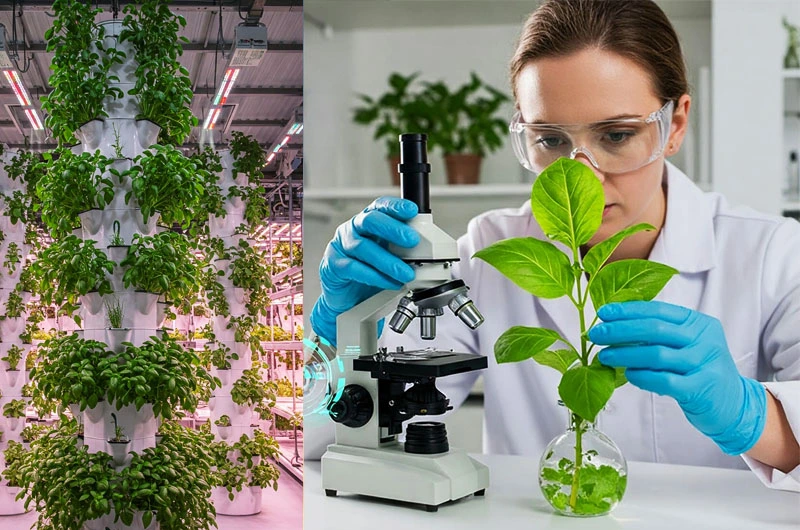
Embracing Sustainable Farming Practices
Alongside technological advancements, there is a growing global emphasis on adopting sustainable farming practices. Organic agriculture is rapidly gaining popularity among both farmers and environmentally conscious consumers. This approach prioritizes methods that avoid the use of synthetic pesticides, chemical fertilizers, and GMOs, focusing on protecting both human health and the delicate balance of the environment. Conservation agriculture techniques, including minimum tillage, the use of cover cropping, and strategic crop rotation, are proving highly effective in improving overall soil health, significantly reducing soil erosion, and actively preserving crucial biodiversity. Integrated Pest Management (IPM) strategies offer a holistic approach, combining various methods to control pests effectively and sustainably, thereby minimizing the reliance on harmful chemical pesticides. Finally, the implementation of efficient water management techniques, such as drip irrigation, advanced sprinkler systems, and smart water management technologies, is crucial, especially in the face of increasing challenges posed by climate change.
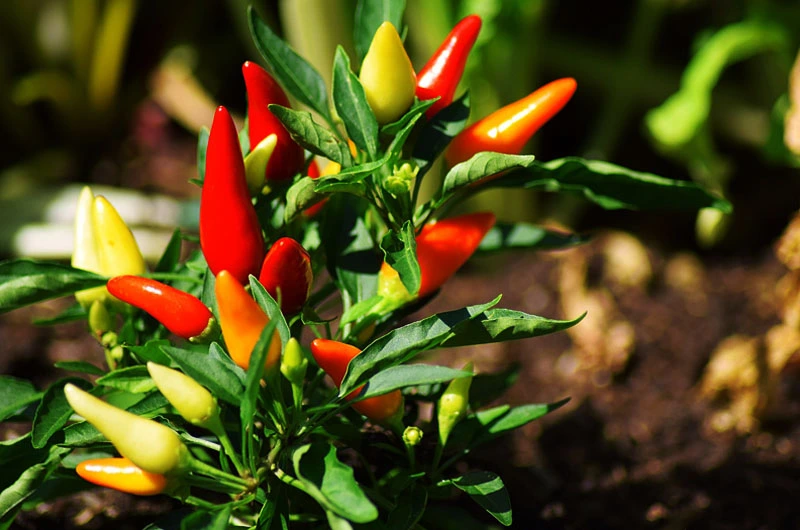
Increased Productivity and Efficiency: Meeting Global Demands
The collective impact of these remarkable advancements has led to a significant and sustained increase in both crop and livestock productivity worldwide. This progress is essential in meeting the ever-growing food demands of a rapidly expanding global population. Furthermore, production efficiency has been dramatically improved through the optimized utilization of resources and a substantial reduction in agricultural waste.
Addressing the Persistent Challenges in Agriculture
Despite these impressive advancements, the agricultural sector continues to grapple with several significant challenges. Climate change remains a major threat, causing increasingly frequent and intense extreme weather events that severely impact agricultural production. Resource depletion, including the alarming degradation of soil quality and the growing scarcity of fresh water, threatens the long-term sustainability of agricultural practices. Global food security remains a critical concern in many regions around the world. Additionally, the complex task of building efficient and equitable markets and supply chains that truly benefit farmers remains a significant hurdle to overcome.
Future Trends Shaping the Agricultural Landscape
Looking towards the future, several key trends are poised to further shape the agricultural landscape. Digital agriculture will continue its rapid evolution, leveraging the power of digital technologies, big data analytics, and sophisticated AI algorithms. Regenerative agriculture, with its core focus on actively improving soil health and the overall health of agricultural ecosystems, is gaining significant traction as a sustainable and environmentally friendly approach. Urban agriculture initiatives are experiencing a surge in popularity, offering innovative ways to enhance local food security and reduce the environmental impact associated with traditional food transportation in urban areas. Finally, ongoing research and development in alternative food production, including plant-based proteins, sustainable insect farming, and innovative lab-grown meat technologies, are actively exploring new and potentially transformative ways to feed the world’s growing population.
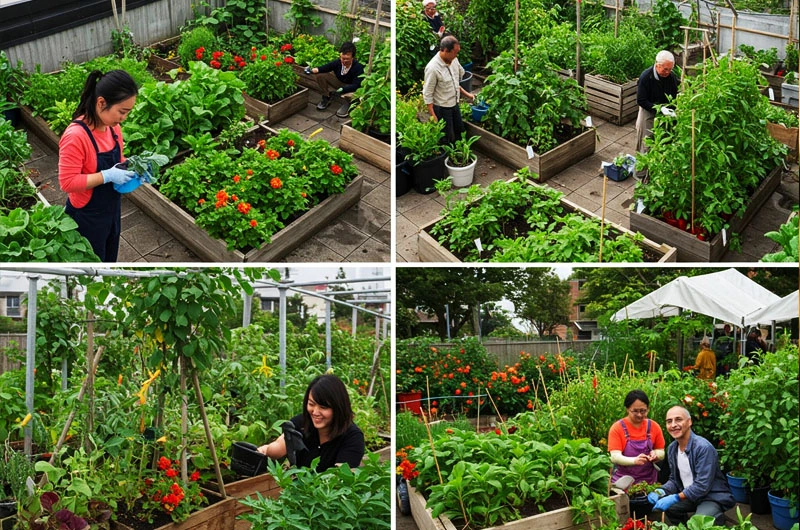
A Transformative Era for Global Agriculture
In conclusion, global agriculture is currently undergoing a transformative period, driven by the powerful forces of technological innovation and a deep-seated commitment to environmental sustainability. While substantial progress has been made in addressing many of the challenges facing the sector, continued dedication and innovation will be absolutely crucial in ensuring a food-secure and environmentally sustainable future for all.

